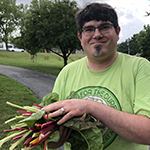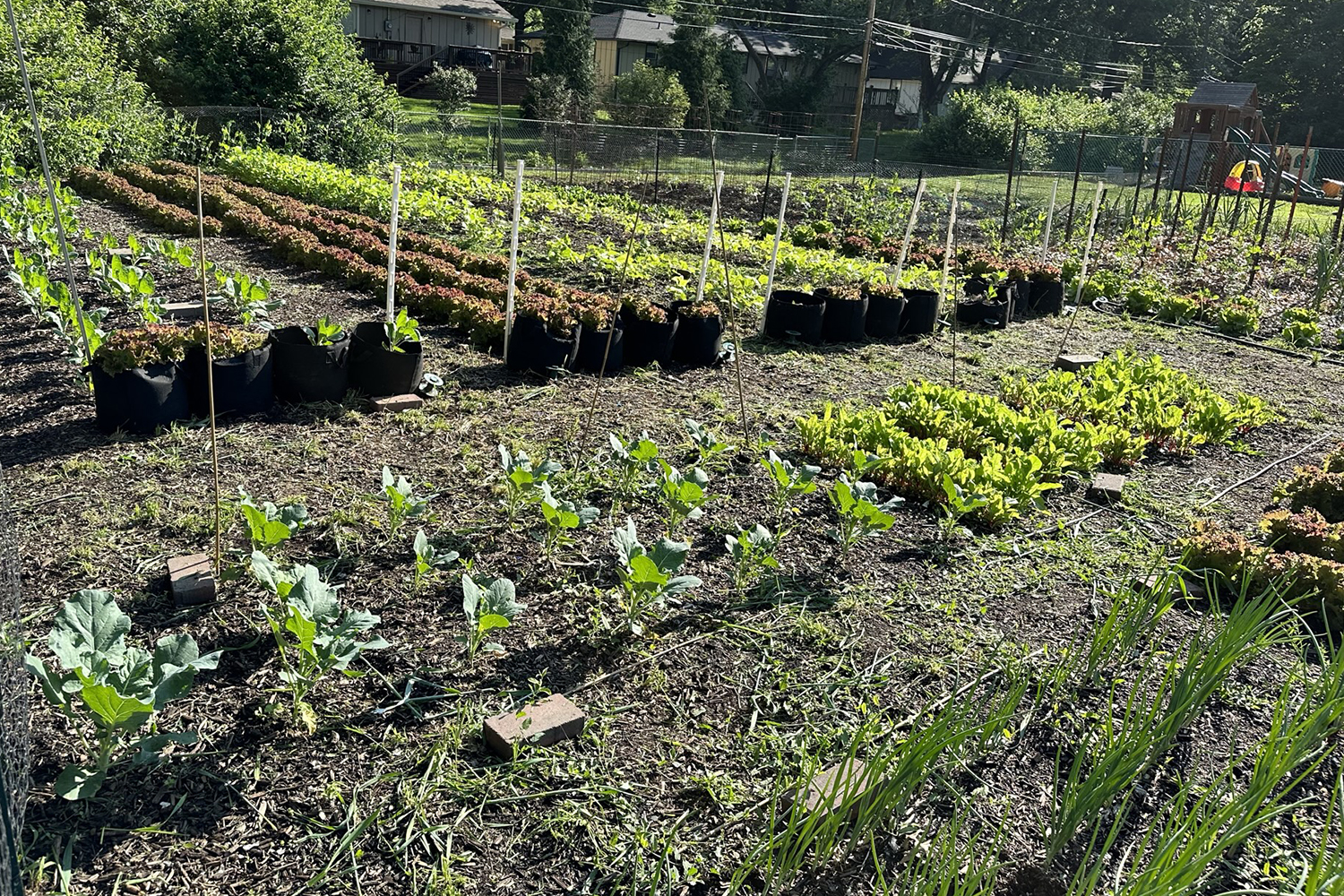
Food for the Cure founder Andrew Fitzgerald holds some of the vegetables grown in the organization’s garden. Photo courtesy of Food for the Cure
AFTER ANDREW FITZGERALD’S MOTHER, Brenda, was diagnosed with bile duct cancer in April 2015, he witnessed firsthand the harsh realities of living with cancer. He was by her side throughout her treatment until she died in December 2016. “It’s one thing to know that someone has cancer, and it’s a whole different kind of experience if you’re their caretaker,” Fitzgerald says. “You see the daily effects of the cancer on their body.”
He also saw the financial effects. Mounting medical bills prevented his mother from selecting high-priced organic produce at the grocery store, even though she wanted to eat as healthy as possible during treatment. The experience planted the seed in Fitzgerald’s mind for what would become a nonprofit dedicated to putting organic vegetables on the plates of cancer patients.
Food for the Cure is raising funds to purchase land for a larger garden, as well as a greenhouse so crops can grow year-round. Founder Andrew Fitzgerald says he hopes the organization one day can offer produce not only to people with cancer but to anyone with a chronic illness in the Kansas City area.
In 2019, Fitzgerald posted his idea for a garden benefiting people with cancer to a neighborhood social media site. Following a positive response, he formed Food for the Cure, which grows organic produce for people undergoing cancer treatment. In spring 2020, the group began planting on a 48-by-30-foot plot at a church in Kansas City, Missouri. The garden now yields 250 to 400 pounds of produce annually. Fitzgerald and his team of volunteers grow a variety of vegetables, including bell peppers, broccoli, green beans, lettuce and tomatoes.
For the 2023 season, approximately 20 people with cancer signed up online to receive produce. As each vegetable is harvested, Fitzgerald reaches out to these patients and facilitates the delivery of the fresh crop to their homes. Food for the Cure also provides produce to the Richard & Annette Bloch Cancer Center at University Health in Kansas City.
Follow these tips when starting your own vegetable garden.
Don’t have a green thumb? Neither did Andrew Fitzgerald when he launched Food for the Cure. He offers these tips for people interested in starting their own vegetable garden:
- Plant in a raised bed. Not only is it easier on your back, but you’ll avoid soil compaction.
- Don’t till your soil. Tilling can negatively affect the soil’s microbiome and can cause erosion.
- Watch gardening videos on YouTube to see what works for others (and what doesn’t).
Fitzgerald says the nonprofit gives him a sense of purpose and pays tribute to his mother, all while helping address cancer patients’ nutritional and financial needs. “These people unfortunately can’t get the help and support that they need, and we’re filling that gap,” he says.
Cancer Today magazine is free to cancer patients, survivors and caregivers who live in the U.S. Subscribe here to receive four issues per year.





